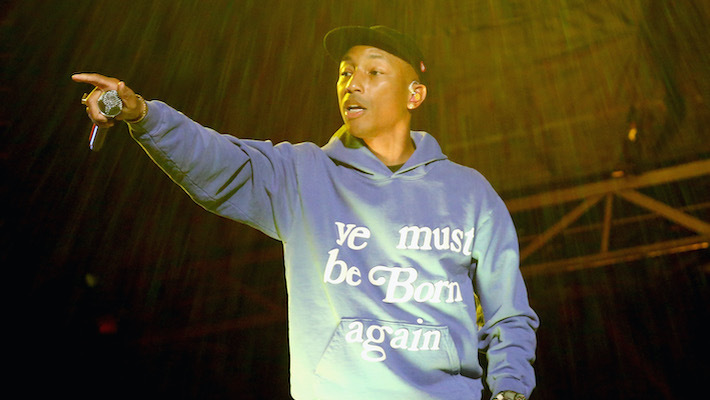Pharrell has been busy these last few years. The musician launched a MasterClass series, continued his Something In The Water music festival, and even released his own line of skincare. But all the while he continued to be tied up in a six-year-long copyright case against Marvin Gaye’s estate. But following a recent decision from a judge, his case has reportedly been put to rest.
The original lawsuit was filed following the release of “Blurred Lines,” Pharrell’s collaboration with Robin Thicke. It alleged that the two had ripped off Marvin Gaye’s “Got to Give It Up.” Eventually, courts sided with Gaye’s estate, saying Pharrell and Thicke had plagiarized the song. But Gaye’s estate did not stop there.
They followed-up the lawsuit by hitting Pharrell with a perjury motion, saying the musician lied in court. They cited a 2019 GQ interview where Pharrell stated he “reverse engineered” Gaye’s song. “We try to figure out if we can build a building that doesn’t look the same, but makes you feel the same way,” Pharrell said. “I did that in ‘Blurred Lines,’ and got myself in trouble.” Gaye’s estate was seeking $3.5 million in attorney fees from the perjury case, but thanks to a recent ruling, Pharrell can get off scot-free (well, besides losing the copyright lawsuit).
According to a report from People, California District Court Judge John Kronstadt ruled that Pharrell’s statement does not show that he committed perjury in the case. Issuing his verdict, Judge Kronstadt wrote:
“The statements by Williams during the November 2019 Interview were cryptic and amenable to multiple interpretations. For example, it is unclear what Williams meant by ‘reverse-engineer[ing].’ Read in context, Williams statement about ‘reverse-engineering’ could be interpreted as a process in which he remembers his feelings when listening to particular music, and then attempts to recreate those feelings in his own works. This is not inconsistent with his deposition testimony, in which he claimed that he realized after creating ‘Blurred Lines’ that the feeling he tried to capture in the song, was one that he associated with Marvin Gaye. […] For these reasons, the Gaye Parties have not shown by clear and compelling evidence that there are sufficiently material inconsistencies between Williams’ statements in the November 2019 Interview and his sworn testimony, to support a finding of perjury.”
See the official ruling above.




